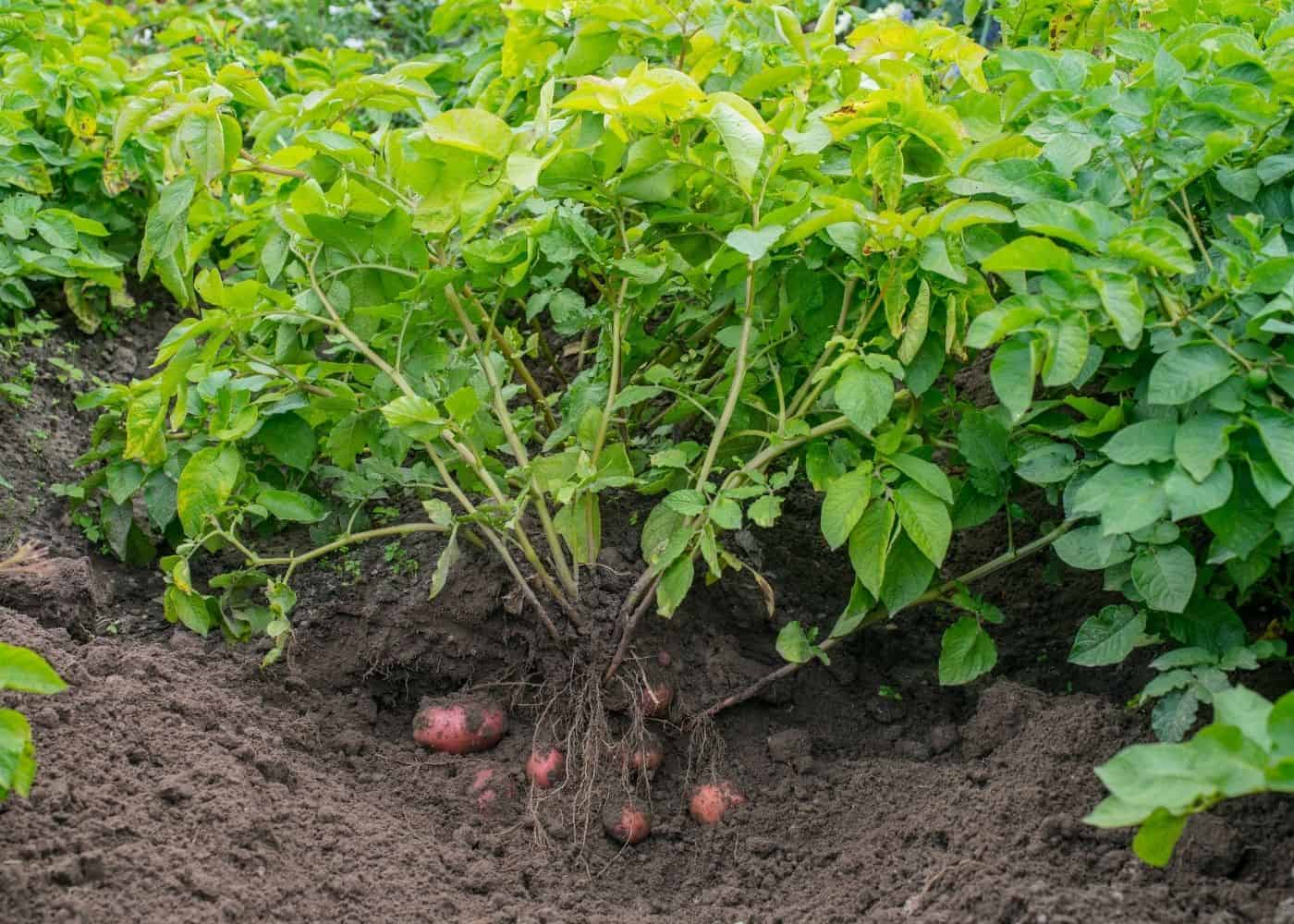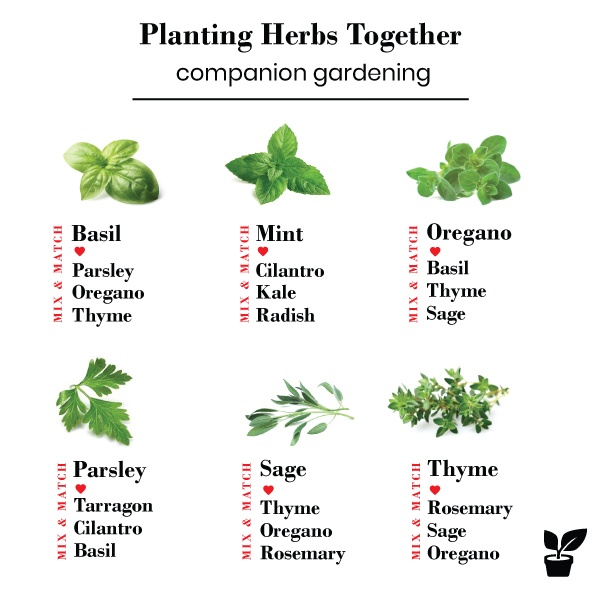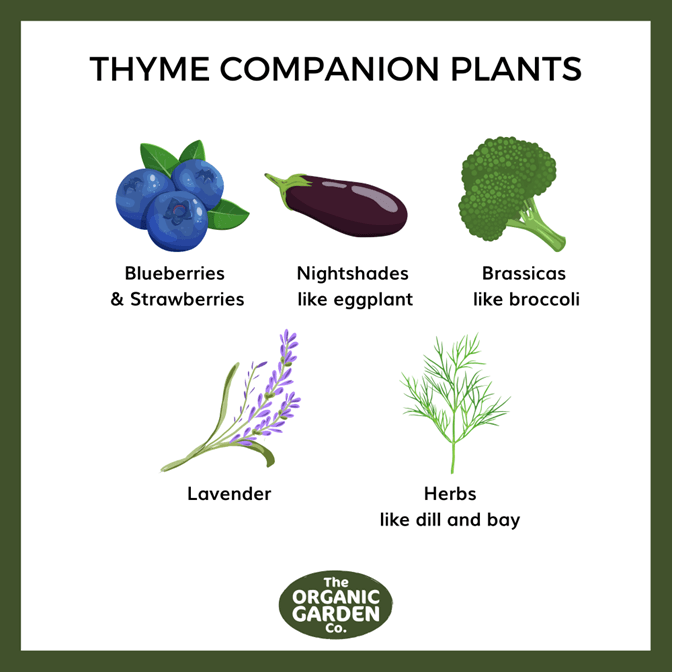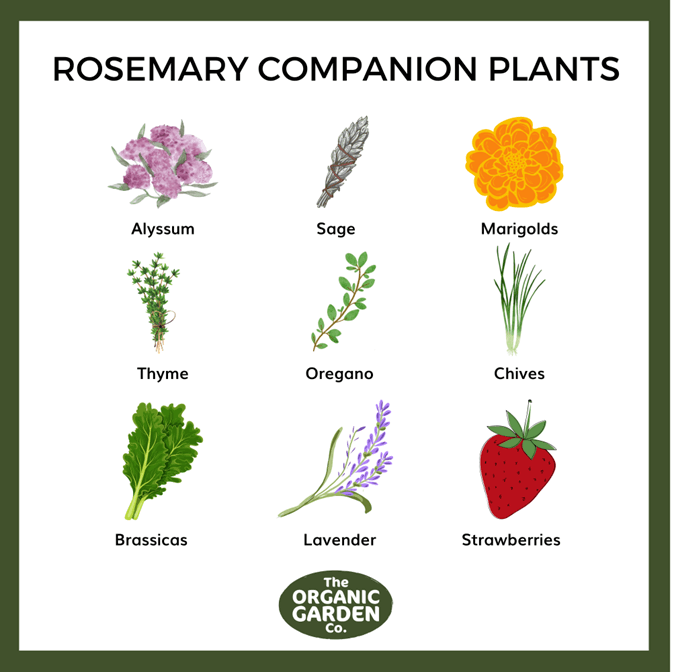Best Companion Plants For Thyme
Thyme Companion Plants: The Ultimate Guide
Thyme is a versatile herb that can be used in a variety of dishes, from savory to sweet. It's also a popular choice for companion planting, as it can help to deter pests and improve the growth of other plants.
In this blog post, we'll discuss the best companion plants for thyme. We'll also cover some of the reasons why these plants make good partners, and how to plant them together for the best results.
Why Companion Plant?
Companion planting is a gardening technique that involves planting different types of plants together in order to create a mutually beneficial relationship. Some plants can help to repel pests, attract beneficial insects, or improve the flavor of other plants.
Thyme is a great companion plant for a variety of other plants. It has insect-repelling properties, which can help to protect its neighbors from pests such as cabbage worms, cabbage loopers, and aphids. Thyme can also improve the flavor of tomatoes, eggplants, and other vegetables.
Best Companion Plants for Thyme
Here are some of the best companion plants for thyme:
- Brassicas: Brassicas, such as broccoli, cabbage, cauliflower, and kale, can benefit from the insect-repelling properties of thyme. Thyme can also help to improve the flavor of these vegetables.
- Carrots: Thyme can help to repel carrot flies, which are a common pest of carrots.
- Cucumbers: Thyme can help to repel cucumber beetles, which are another common pest of cucumbers.
- Eggplants: Thyme can help to repel eggplant moths, which are a common pest of eggplants.
- Herbs: Thyme can be planted with other herbs, such as rosemary, oregano, and lavender. These herbs have similar growing requirements and can help to attract beneficial insects.
- Lettuce: Thyme can help to repel aphids, which are a common pest of lettuce.
- Potatoes: Thyme can help to repel potato beetles, which are a common pest of potatoes.
- Rosemary: Rosemary and thyme are both members of the mint family and have similar growing requirements. They can be planted together to deter pests and improve the flavor of each other's flowers and leaves.
- Sage: Sage and thyme are both herbs with strong flavors that can complement each other in cooking. They can also be planted together to deter pests and attract beneficial insects.
- Shallots: Thyme can help to improve the flavor of shallots.
- Tomatoes: Thyme can help to repel tomato hornworms, which are a common pest of tomatoes. Thyme can also help to improve the flavor of tomatoes.
How to Plant Companion Plants
When planting companion plants, it's important to consider their growing requirements. Some plants, such as thyme, prefer full sun and well-drained soil. Others, such as cucumbers, prefer partial shade and moist soil.
It's also important to plant companion plants that have similar water and fertilizer needs. If you're not sure what the growing requirements of your plants are, consult a gardening guide or talk to a nursery professional.
Once you've chosen your companion plants, it's time to plant them. Follow the instructions on the plant tags for spacing and depth. If you're planting in a garden bed, you may want to add compost or manure to the soil to improve drainage and fertility.
After planting, water your companion plants well. You may need to water them more often if the weather is hot and dry.
Conclusion
Companion planting is a great way to improve the health and productivity of your garden. By planting thyme with compatible plants, you can deter pests, attract beneficial insects, and improve the flavor of your vegetables and herbs.
Thyme is a versatile herb that can be used in a variety of dishes, but it's also a great companion plant for other crops. Thyme can help to repel pests, improve the flavor of other plants, and even attract beneficial insects.
If you're looking for some good companion plants for thyme, here are a few suggestions:
- Brassicas: Thyme can help to repel pests that commonly affect brassicas, such as cabbage worms, cabbage butterflies, and cabbage loopers.
- Eggplants: Thyme can help to repel pests that commonly affect eggplants, such as moths.
- Onions and garlic: These alliums have similar growth requirements to thyme and can help to repel pests like aphids and spider mites.
- Potatoes: Thyme can help to keep pests like Colorado potato beetles at bay.
- Chamomile: Chamomile has similar growth requirements to thyme and can help to attract beneficial insects like hoverflies and parasitic wasps.
- Lavender: Lavender is another plant with insect-repelling properties that can help to keep whiteflies and slugs away from thyme.
For more information about thyme companion plants, you can visit Gardenia Inspiration. This website has a comprehensive list of companion plants for thyme, as well as information about the benefits of companion planting.
FAQ of thyme companion plants
Q: What are some good companion plants for thyme?
A: Thyme is a versatile herb that can be paired with a variety of other plants. Some of its best companions include:
- Roses: Thyme helps to repel pests that can damage roses, such as aphids and spider mites.

- Tomatoes: Thyme helps to improve the flavor of tomatoes and can also help to deter tomato hornworms.
- Potatoes: Thyme helps to repel potato beetles and other pests.

- Lettuce: Thyme helps to repel aphids and other pests that can damage lettuce. It can also improve the flavor of lettuce.

- Shallots: Thyme helps to repel thrips and other pests that can damage shallots.

Q: What are some bad companion plants for thyme?
A: There are a few plants that should not be planted near thyme, as they can compete for resources or even be harmful to the thyme plant. These include:
- Chives: Chives and thyme are both members of the onion family, and planting them together can lead to root rot.

- Basil: Basil and thyme have similar growing requirements, and planting them together can lead to competition for resources.

- Coriander: Coriander can release toxins that can be harmful to thyme plants.

Q: How do I plant thyme companion plants?
A: When planting thyme companion plants, it is important to consider the needs of both plants. For example, if you are planting thyme with roses, you will need to choose a location that gets full sun and has well-drained soil. You will also need to space the plants appropriately, as thyme can spread quite quickly.
Q: How do I care for thyme companion plants?
A: Once your thyme companion plants are established, they are relatively low-maintenance. You will need to water them regularly, especially during hot, dry weather. You should also fertilize them once a month during the growing season.
Q: How do I harvest thyme companion plants?
A: You can harvest thyme leaves as needed throughout the growing season. To do this, simply snip off the leaves with a pair of scissors. You can also harvest the entire plant at once, and then dry the leaves for use later.
Image of thyme companion plants
5 different images of thyme companion plants from Pinterest:
- Thyme and strawberries. Thyme helps to repel worms, which can be a problem for strawberries. It also helps to improve the flavor of strawberries.

- Thyme and cabbage family crops. Thyme helps to repel cabbage moths and other pests that can damage cabbage family crops. It also helps to improve the flavor of these crops.

- Thyme and tomatoes. Thyme helps to repel tomato hornworms and other pests that can damage tomatoes. It also helps to improve the flavor of tomatoes.

- Thyme and eggplants. Thyme helps to repel eggplant flea beetles and other pests that can damage eggplants. It also helps to improve the flavor of eggplants.

- Thyme and potatoes. Thyme helps to repel potato beetles and other pests that can damage potatoes. It also helps to improve the flavor of potatoes.

Post a Comment for " Best Companion Plants For Thyme"